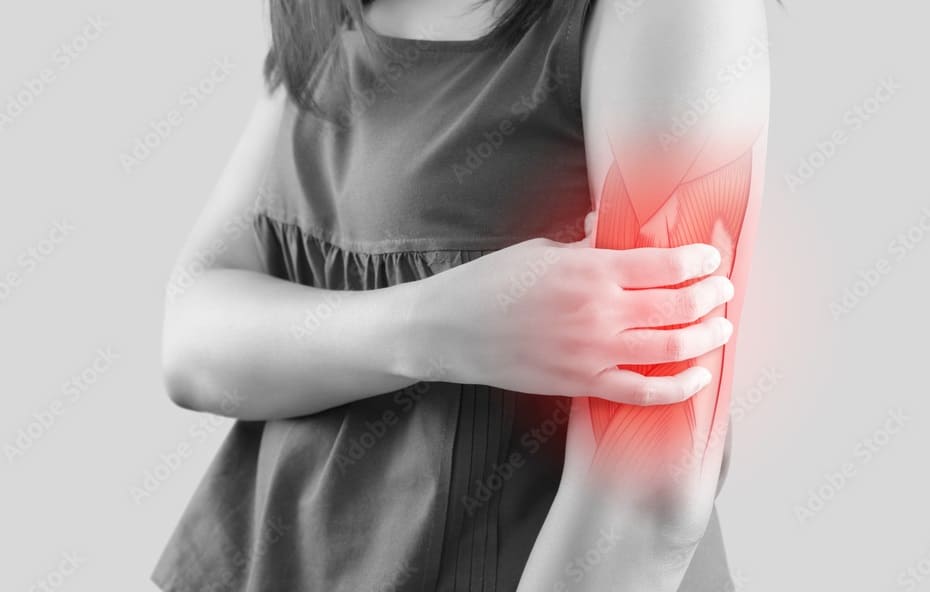Have you ever experienced an annoying, uncontrollable muscle twitch? Maybe your eyelid wouldn’t stop fluttering, or your leg kept jerking involuntarily. Muscle twitching, also known as fasciculation, is a common occurrence, but when it becomes persistent, it can raise concerns. Let’s dive into why our muscles twitch repeatedly and what can be done about it.
What Causes Muscle Twitching?
Muscle twitches can be triggered by several factors, ranging from harmless to medical conditions requiring attention. Here are some common causes:
1. Stress and Anxiety
Your body reacts to stress in many ways, and muscle twitching is one of them. Anxiety can lead to hyperstimulation of nerves, causing random twitches in different parts of the body. Chronic stress may also lead to increased muscle tension and fatigue, further exacerbating the twitching.
2. Caffeine and Stimulants
Too much caffeine or other stimulants can overexcite the nervous system, leading to involuntary muscle contractions. If you’re consuming excessive coffee, energy drinks, or nicotine, you may notice more frequent twitching. Certain pre-workout supplements containing high levels of stimulants can also contribute to this issue.
3. Dehydration and Electrolyte Imbalance
Muscles rely on proper hydration and balanced electrolytes like magnesium, potassium, and calcium to function smoothly. When these are depleted, muscle twitches may become more frequent. Excessive sweating, diarrhea, or a lack of proper hydration can disrupt this balance.
4. Overuse and Fatigue
After an intense workout or prolonged muscle use, fibers may spasm due to fatigue. This is common in athletes or individuals who engage in heavy physical activity. When muscles are overworked, they may experience micro-tears, leading to involuntary contractions as they repair.
5. Nutrient Deficiencies
A lack of essential vitamins, particularly B vitamins and magnesium, can affect nerve and muscle function, leading to twitching. Vitamin D deficiency has also been linked to muscle spasms. Ensuring a well-balanced diet with adequate nutrients can help alleviate these symptoms.
6. Medication Side Effects
Certain medications, such as diuretics, corticosteroids, or drugs used to treat ADHD and depression, can contribute to muscle twitching as a side effect. In some cases, stopping or changing medications under medical supervision can reduce symptoms.
7. Neurological Conditions
While rare, persistent muscle twitching could be a sign of an underlying neurological disorder such as:
- Amyotrophic Lateral Sclerosis (ALS): A progressive disease affecting nerve cells that control muscles, leading to weakness and twitching.
- Multiple Sclerosis (MS): An autoimmune disease that affects nerve signaling, sometimes causing muscle spasms.
- Peripheral Neuropathy: Nerve damage outside the brain and spinal cord that can lead to muscle twitching, numbness, and tingling.
- Parkinson’s Disease: A movement disorder that can cause involuntary muscle movements along with tremors and stiffness. If muscle twitching is accompanied by muscle weakness, loss of coordination, or other neurological symptoms, it’s important to seek medical advice.
When Should You Be Concerned?
Most muscle twitches are harmless and temporary. However, you should see a doctor if:
- Twitching persists for several weeks without relief.
- It is accompanied by muscle weakness, cramps, or atrophy.
- You experience other neurological symptoms like numbness, tingling, or difficulty speaking.
- Twitching interferes with daily activities.
- You notice twitching occurring in multiple areas of the body simultaneously.
How to Prevent and Manage Muscle Twitching?
If your muscle twitches are mild and occasional, here are some steps to reduce their occurrence:
- Reduce stress and practice relaxation techniques like deep breathing, yoga, or meditation.
- Cut back on caffeine and stimulants. Reducing intake of coffee, energy drinks, and nicotine can help stabilize nerve activity.
- Stay hydrated and ensure you get enough electrolytes through a balanced diet or supplements if necessary.
- Avoid overexertion and allow muscles to recover after exercise. Incorporate proper warm-ups and cool-downs in workouts.
- Maintain a nutrient-rich diet, especially foods high in magnesium (nuts, seeds, dark chocolate), potassium (bananas, spinach), and B vitamins (whole grains, eggs, dairy).
- Check your medications and consult your doctor if you suspect a side effect.
- Get adequate sleep. Poor sleep can contribute to nerve overstimulation, increasing the likelihood of muscle twitching.
- Massage and gentle stretching. Regular muscle massage and stretching can improve circulation and reduce tension, helping to prevent twitches.
Final Thoughts
Muscle twitching is usually nothing to worry about, but frequent or persistent twitching may indicate an underlying issue. By making small lifestyle changes, you can often minimize these involuntary contractions. However, if twitching becomes chronic or is accompanied by other symptoms, don’t hesitate to consult a healthcare professional.
Also Read:
